Six producers share their philosophical perspectives and practical approaches to sampling in 2021.
Few developments have had as great an impact on the music production landscape as the advent of sampling. Nowadays, the act of taking a section of a sound recording and repurposing it within a new composition is second nature to most producers, but when sampling technology first gained momentum in the early 1980s, it brought about nothing short of a cultural revolution. It played an integral role in the early evolution of hip-hop, as well as pretty much every electronic music scene known today, expanding access to music production for the first time beyond the recording studio. It also precipitated a string of debates regarding the ethics and creative value of music made from other artists’ work, which continue to develop alongside sampling technologies and the creative possibilities of the technique. To capture the current state of modern sampling culture, we asked six artists to share their philosophical perspectives and practical approaches to working with samples. Here’s what they had to say...
Dar Disku
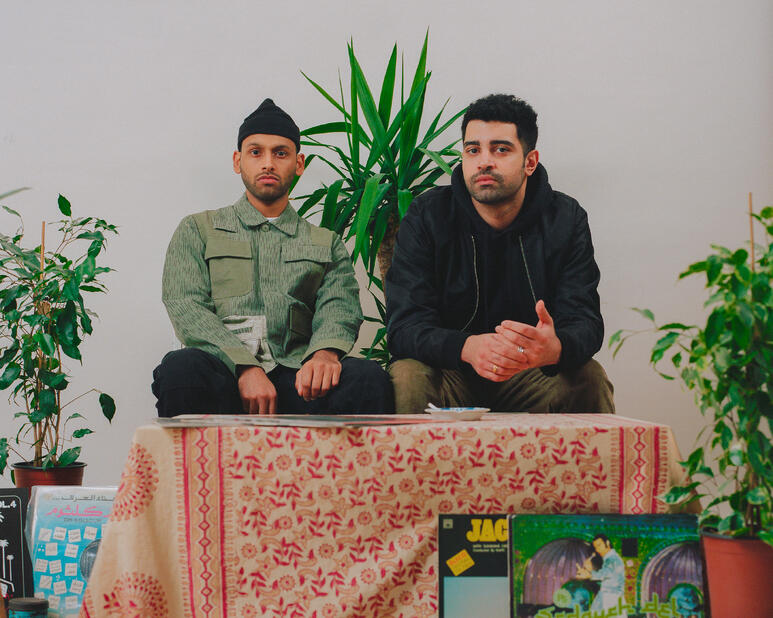
“I think sampling is as important today as it’s ever been in music, especially with the amalgamation of musical genres into one sonic broth of less definable and less confined musical soundscapes that borrow and exchange with one another.
“This interchange has become so deeply interconnected that it means people have gone from listening to ‘world music’ to developing more specific tastes such as Zouk, Soca, Rai and many more. Take, for example, the sampling of traditional middle eastern or Indian songs that might otherwise be played at cultural gatherings, weddings or within family homes. Through sampling, these tracks are given a fresh sonic backdrop, which means they suddenly evoke a brand new temptation to dance. They maintain the wholesome uniting musical traits that make people want to dance and collectively celebrate together, but this time in a club setting. I think this is one of the aspects of sampling that draws producers to the craft. Remarkably you introduce your fingerprint into the traceable history of a track and in some cases, give it new life, meaning and narrative.
“Although I might from time to time go on a search for my next sample - digging through a crate of records or scouring online forums - the most special moments have happened organically and sometimes accidentally. I do believe that samples ‘call out’ to the producer and that spotting that ‘golden moment’ or loop is something that happens very viscerally and spontaneously when you least expect it. The key is to constantly be open-minded to its calling.
“In terms of working with a sample, I think respect for the sample should come first and foremost. Sometimes there’s a language barrier and so taking the time to get some help translating any vocals is essential. There have been multiple times I’ve been in love with a sample and how it’s sounded within my track only later learning that it contained culturally sensitive or religious significance and I’ve had to abandon its use.
“My workflow usually involves chopping samples into segments that have their own intrinsic hook. Sometimes I like shifting my chop intentionally to fall on the offbeat, helping to reimagine its musicality. Introducing randomness including reverse chops, randomized pitch and random assignments to a key bay can stretch the possibilities of working with the track. Once I’ve decided on my chops, I’ll analyze the contents of the chops including the bounce or groove pattern within the sample. This might be a shuffle beat, so introducing percussive components that match this in any additional tracks helps the sample to sit nicely. I’ll then go on to analyze the textures within the track. I’ll often use emulators of 80s and 90s synthesizers like 909 drums or Juno/DX7 sounds to give the track some authenticity if these sounds exist in the track, sometimes even adding noise and warping. I like to think of this phase as the cake baking stage where everything sits nicely together with a cohesive body, after which comes the ‘icing’ or sprinkles that make a track come to life.
“This is usually the point at which I try to bend all expectations of what genre or sonic space a track should live in, pushing and pulling it to its limit in a kind of ‘destructive testing’ approach. It’s through this process that I’ll usually find out where the track shines the most. Then comes my favourite part of the process, where you find yourself dancing and bobbing to the track you’ve created. That’s usually when you know it’s ready for the dance floor.”
FOLLOW DAR DISKU:
Peggy Viennetta
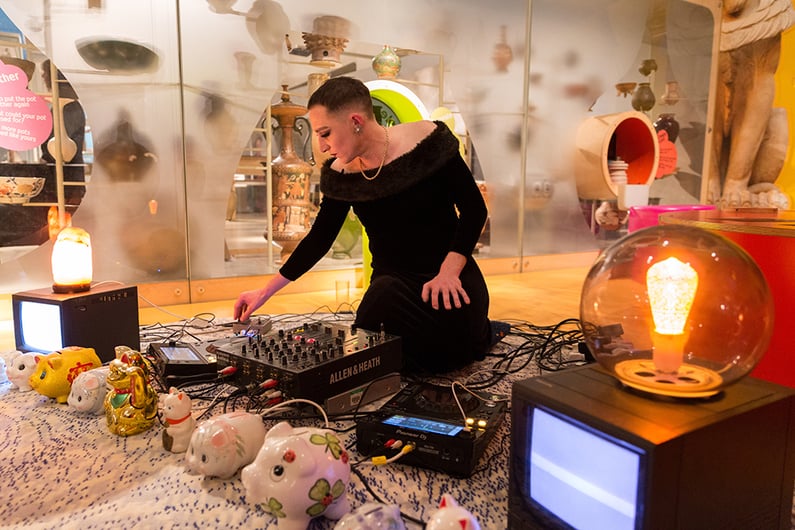
“For me these days sampling is everything. I can respect the idea of trying to go full hardware and the vibe you get when you're writing that kind of music, but the reality is that you're just limiting yourself as an artist for the sake of a stylistic choice and purists are just gatekeepers. I don't really need to talk about how sampling just improves workflow but it does, and as an artist that spends so much time with writer’s block or imposter syndrome workflow is so so important.
“There's an obvious stigma around heavy sampling and I fully admit that the generic Jump Up bootleg with a pop sample in a too totally unrelated drop can be cringe, but it all has its time and place in my opinion. In the Donk scene artists make their name by reworking guilty pleasure 00s tracks into dancefloor monsters (check DJ Fingerblast and Lobsta B) and these tracks now have huge broad appeal so as with everything it's important to keep an open mind about it all.
“Personally, I feel it's all about recontextualising another artist's work to engage it with a new audience. In its rawest form, Nightcore is just another track that has been sped up, but the new track can take on a completely new feeling and mood because of that simple adjustment. For example, the majority of Nightcore starts as 120bpm tracks made by Melbourne Bounce producers but then NXC artists just pitch these tracks up to 180bpm. They then suddenly become reminiscent of the long-forgotten Bebo Happy Hardcore era and then get played by huge PC Music artists like AG Cook and Danny L Harle.
“That process will send a shiver down the spine of plenty of 'real' producers but you have to remember that so much of the beloved 90s Rave scene was just tracks or hooks that were wholesale ripped from lesser-known records and never got the credit till the internet age. The most jokes example I can think of with this is how Mr Scruff's most famous tune is just a Moondog track with a bit of breakbeat on it, you can literally play the original to someone and they will go ‘oh I love Mr Scruff’.
“I'd say everything is fair game, art should be about fun and expression so just enjoy it and use a free 909 sample pack instead of convincing yourself you need to buy a real 909 to be a real artist.”
FOLLOW PEGGY VIENNETTA:
K.I.I.A

“I'm a big fan of samples! I work for a music tech company that makes and sells sample libraries so they're a big part of my world. I think there's still a lot of space for sampling depending on what you are trying to achieve and what sort of music you are writing. There seems to be this opinion that sampling is cheating, and I'll admit I believed that for a long time, but there's so much fun that can be had with samples. The idea that there's one correct way of making music breeds elitism and exclusivity and electronic music has enough of that already without dictating right and wrong approaches to creativity. Samples can be excellent sources of inspiration and useful tools for those new to production - just remember to make them your own!
“Sometimes I start with samples first, basing a track around a sampled drum loop and other times they come much later in the process, used to create texture and depth. No matter when I use them my first thing will always be to warp, chop, and transpose. By creating my own loops and tuning them to the song I'm writing, it's not long before they take on a different life and become something of my own. I also like to use samples from lots of different places, this makes for some interesting juxtaposition whilst working with sonically cohesive sounds.”
FOLLOW K.I.I.A:
Red Rack’em
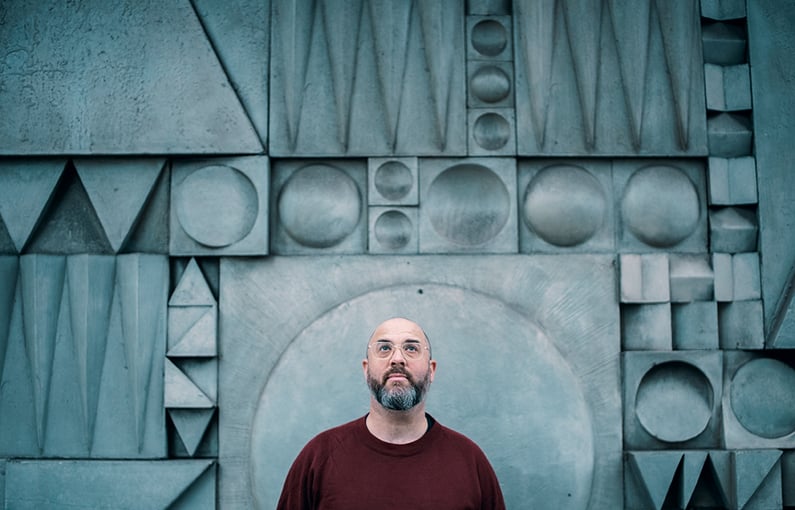
“I absolutely LOVE sampling. I don't know what the correct superlative is for how important I think it has been in the development of hip hop, electronic music and indeed pop.
“It's the recontextualization of a forgotten gem or sometimes, the clever sleight of hand to make something that is ubiquitous have a completely different twist. My stance on the legal side of things is that if something is making a considerable amount of money and is available infinitely in a digital context, then the rights holder should be compensated, but I would only expect that to happen if there was considerable money earned by the track with the sample in it. If someone is selling 3-500 copies of a record of a few hundred streams then I think it's totally okay to have samples in it. That said, I also think it depends on what you do with the sample. If you've verbatim just recorded someone else track and put a drumbeat on it then that's not so cool, but I guess there would be no hip hop then.
“I am a fan of 'flipping' samples - where you completely change the start and endpoints and make it something which barely resembles the original track. Samples to me are just sonic building blocks. Yes, it would be great to record lots of live music with vintage equipment, then press it onto dubplates, sample it on an SP12 and then use it in my music. Or I can just go on YouTube and use a 192 rip of a live recording from the 70s, warts and all.
“In terms of today’s production landscape, I can appreciate the issue of sampled artists seeing other artists using their music and it being classed as a track BY the sampler. But at the same time, if you're using the sample in something completely new, isn't all art derivative? For example, Jacob Collier, Louis Cole and Marc Rebillet are rightly lauded as modern-day musical powerhouses but they use musical tropes and chord sequences that were developed and perfected many decades before them. Isn't that sampling? If you make a hypey crunk track with an 808 boom and put autotune on it, isn't that sampling on a more general scale? You could just look at sampling as audio referencing. Referencing is encouraged in academia yet in music you're supposed to reinvent the wheel every time you commit something to the ether. I have personally found that if you make something which is too out there, sometimes people aren't ready. So perhaps sampling is a way of reformatting things that didn't get love back in the day. Is that a bad thing?
“Nothing is sacred for me. I really enjoy using something people know, but where no one notices the well-known sample. For me, it's all about texture and grit, so I really like sampling off youtube. Often there's a lot of hiss and tape wobble if it's something old that has been converted. I also sample a lot from DJ mixes as you're getting the cream of that person’s music in a certain genre. So I have sampled off many different nerdy crate-digging DJ mixes because that's the kind of stuff I am looking for to make interesting tracks.
“I tend to cut things up a lot these days, so I really am into the 'hittiness' of samples (taking the front part of a long sound and then playing it as a hit and pitch shifting it) using those New Jersey Garage type rhythms (thank you Kerri) for the hits to make it funky. As I started out producing hip hop, I really love things being wonky and out of time. I have made many tracks that are yet to be released as I am not sure if people are ready for it, or perhaps more accurately, maybe I'm not ready for it! But yeah if you want to hear my approach to sampling check out 'Tomato Pope' or 'Kosmich' or ‘Destined' or 'Deep In Love'. I like to repeat things sometimes to the point that it becomes almost mantra-like. Maybe it's my background growing up in a Buddhist family or my hazy teenage hip hop years. It doesn't perhaps always work for the listener but it amuses me. I like to see how far you can go. For me, the main thing I find boring in other peoples sampling is when something 'works' and it's just repeated again and again. Stuff like disco edits are achingly boring for me unless the music is some raw messed up sh*t. Check out the Kon Rework of Firebolts 'Everybody Dance' for a worthwhile disco edit. I am more interested in something that doesn't loop well being repeated. I remember this Wu-Tang track 'Soul Power' off Iron Flag and it's SUCH a rough loop. It's just some crowd noise and a dope James Brown type loop and that's all you need sometimes. I think samping is about minimalism. You don't need to cram your track full of stuff if you do it right. I feel that by using samples, I am getting rhythmic markers for where to play my own parts on the track. Funky runway lights if you will.”
FOLLOW RED RACK'EM:
POLO LILLI
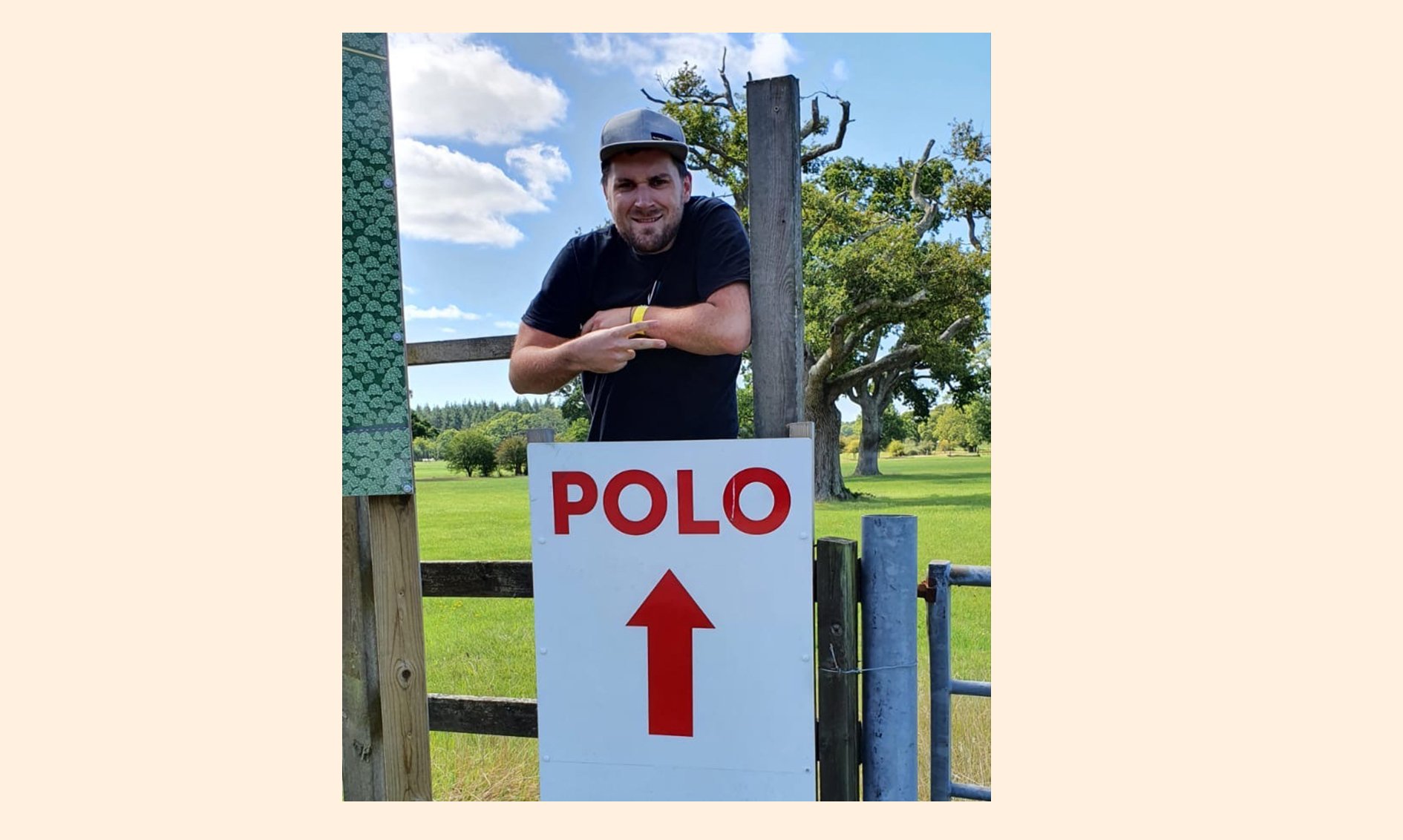
“I have always really admired artists who can use samples well. When somebody completely changes the meaning of a sound by manipulating it or placing it in a new context, there’s something very impressive about that. The first time I heard something that showed me what was possible was “Endtroducing” by DJ Shadow. That album is made entirely with samples and it’s mind-blowing to listen to with that knowledge in mind. The whole work is so cohesive, everything sounds totally unique and unmistakably Shadow. Which, when you consider every element on that record was recorded by other artists, demonstrates how much skill and dedication can go into actively listening, selecting and using samples.
“Obviously, there is a legal and moral line to tread and I think staying on the right side is about being respectful. The act of taking musical ideas from the past and repurposing them to communicate fresh concepts is nothing new; that’s just how music evolves. But in my opinion, things can get shady when artists use parts of other artists’ work to create something that too closely resembles the original in mood or purpose. For example; using a full acapella from a disco track to create an uplifting house track without clearing the sample or crediting the original artist is very different to chopping up that same acapella and using parts of it to add texture and feeling to a dark techno track. With the current trend for 90s nostalgia in dance music, it’s especially important to use samples transformatively, not only to avoid biting the style of others but also to keep things moving forward.
“I take a lot of inspiration from Burial’s ‘Untrue’, not necessarily from its sonic palette, but from the way emotion and energy is found in the moment a sample interacts with its new context. First, I find a sample that has potential in my music and chop it up using Ableton’s “Simpler”. I then start to play the chops rhythmically using my controller, reordering them until I get something that sounds catchy. Ideally, I want to be able to repeat the arrangement indefinitely without the listener getting tired of it. It’s not an exact science, and the process involves patience and plenty of trial and error. I will sometimes spend hours working with a sample before deciding it’s not the one. I’ve learned to be ruthless to avoid getting attached to ideas that do nothing but water down my concept.
“Once I’ve found an arrangement I’m happy with, I’ll find the key of my sample and add melodic elements and drums. This is the part of the process I find can be the most transformative. A new chord progression can completely change the tone and meaning of the source material, and a percussive groove can help it belong in its new home.”
FOLLOW POLO LILLI:
Green Tee
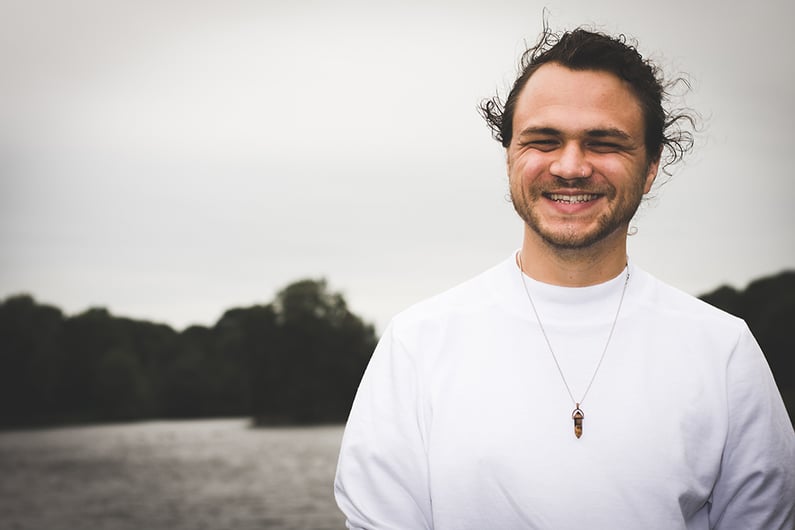
“The variety of samples available to producers these days is amazing, especially compared to what was accessible when I started producing 12 years ago. With platforms like Splice and your favourite artists’ Patreon pages , so many resources are right at your fingertips. Some producers may have a more purist view and would say that using Splice diminishes an artists’ integrity. In my view, as long as you are proud of what you make and the tracks work for their intended purpose - whether that’s the dance floor, home listening or for a client - it doesn’t matter how you get there really. Above all else, it's about enjoying your craft and if samples help to facilitate that then go for it!
“With my ‘green tee’ project, my production is mainly sample-based. I tend to manipulate samples quite heavily, not only because I find dragging and dropping a boring process but also because using certain techniques (especially pre-saved effects racks) helps to give my music a signature sound. I have a sample folder full of field recordings that I have collected from all over the world, using the cheap and cheerful ‘Zoom H1’ microphone. After creating the bare bones of a track, using these sounds can really help to bring character and texture to an otherwise sterile sounding loop. It is also very nostalgic for me personally and acts kind of like an audio diary.
“Sampling copy-written music is something I avoid, especially in the more mainstream genre of lo-fi hip hop, although I do enjoy sampling fail videos! For example in one of my tracks you can hear the sound of a bloke falling into a frozen canal with his friend laughing in the background, it just adds a bit of subtle humour that’s kind of a private joke just for me. Also, it gives me an excuse to slack off and watch dumb videos!”
FOLLOW GREEN TEE:
Want to hone your production skills and processes to a professional level? Then our BA degrees in Electronic Music Production and Music Production and Sound Engineering might be for you.

